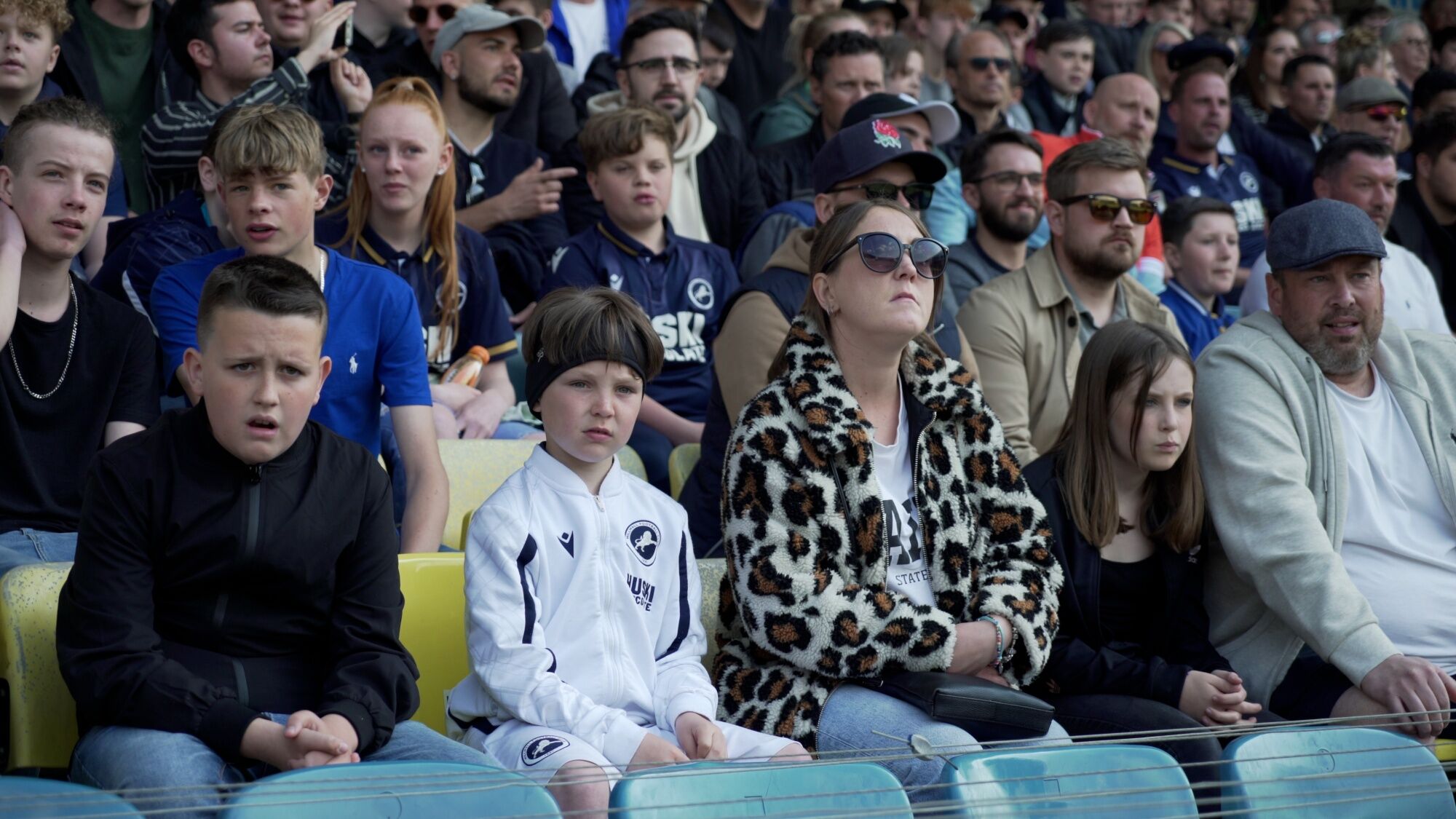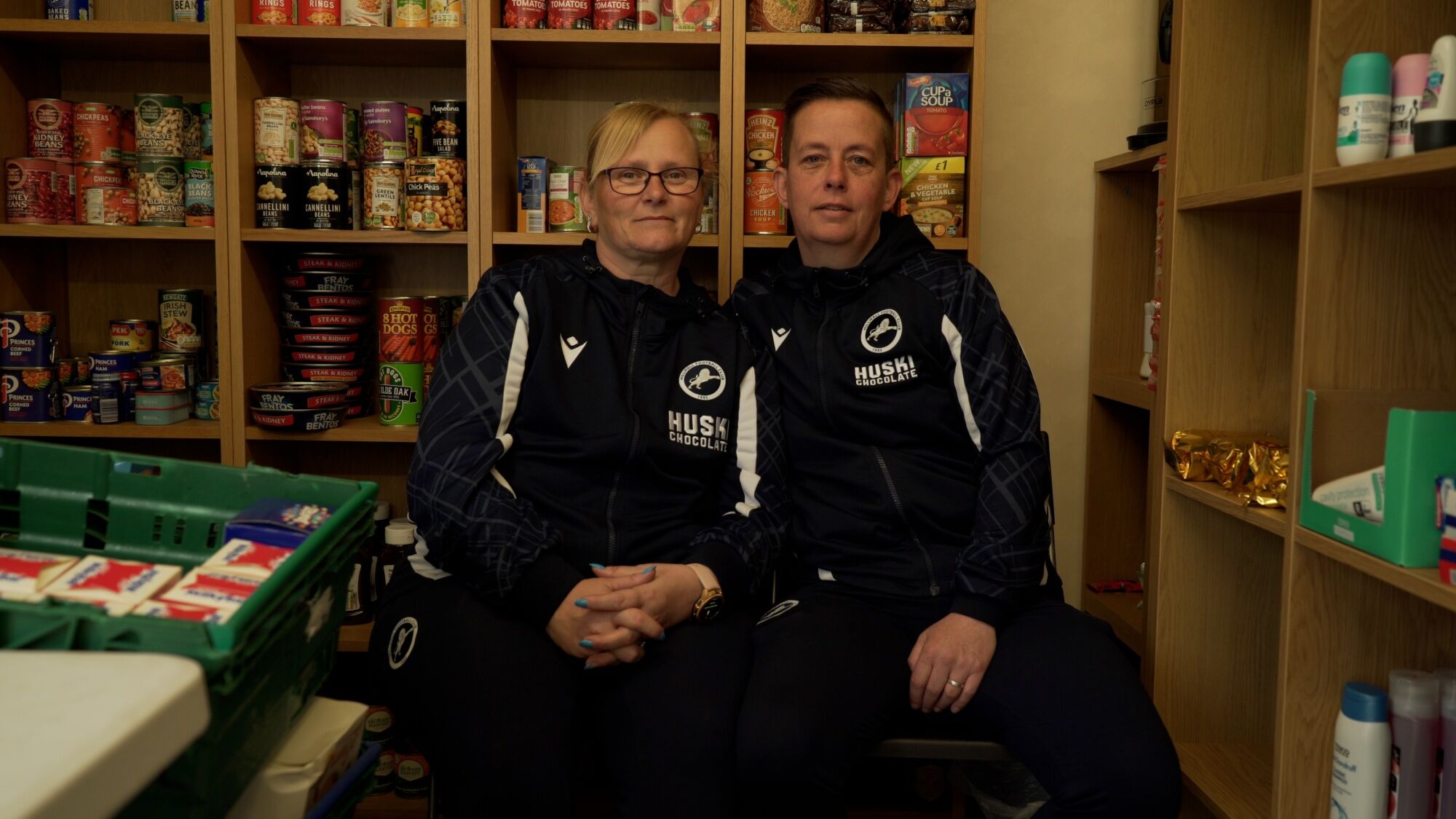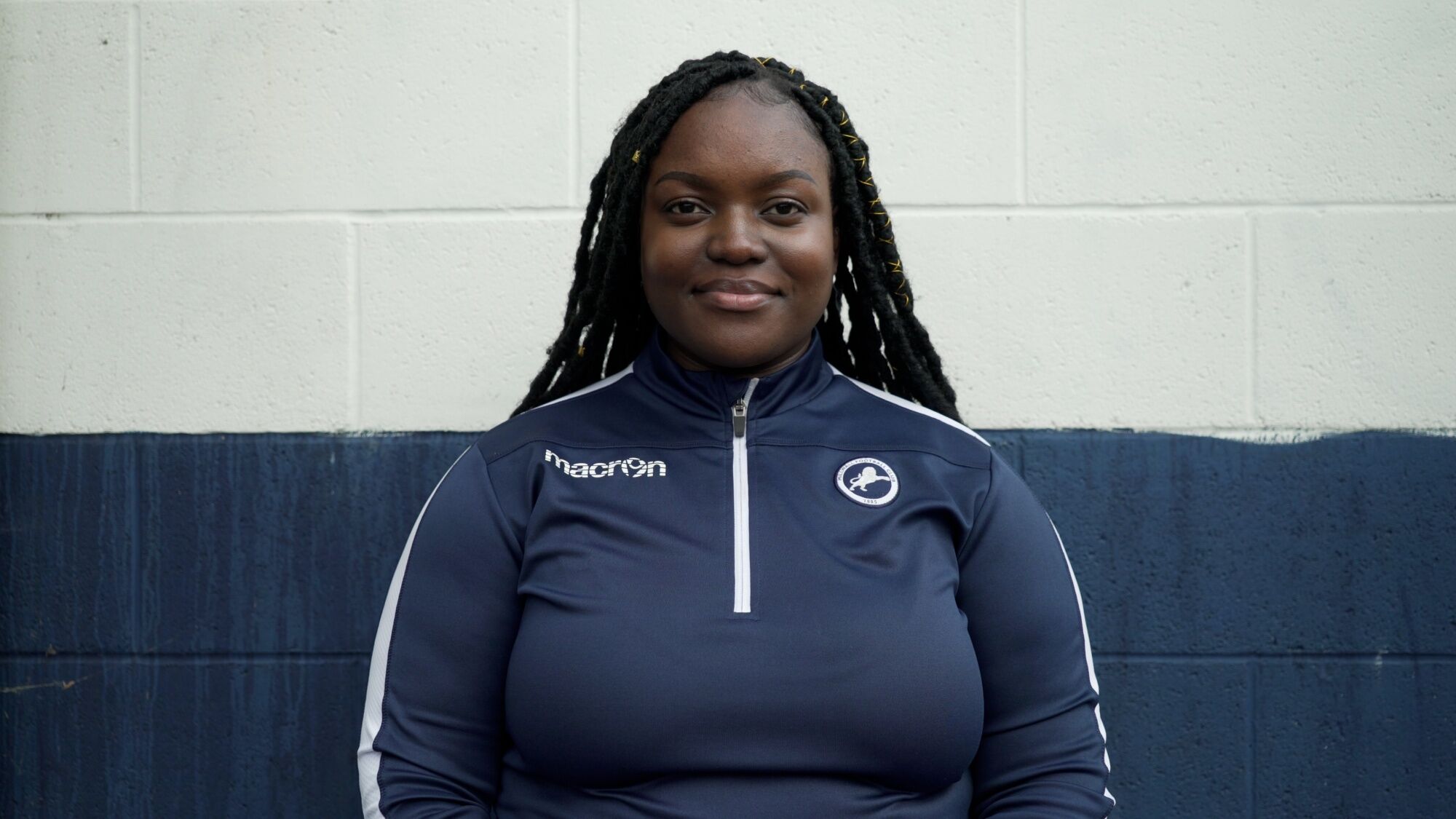From a 1977 BBC Panorama documentary to ‘Arrivederci Millwall’, on-screen portrayals of Millwall have often focussed on a darker past full of unsavoury characters, violence and hooliganism.
However, experimental documentary Millwall on the Screen attempts to redress that balance with filmmaker Harry Lawson capturing the essence of Millwall Football Club’s community, challenging perceptions of the ‘stereotyped fanbase’ and using ‘archival scrap to bring some of Millwall’s past as intermission onto the present’.
The film, a 52-minute piece across three screens, combines Lawson’s footage, sound and interviews with archival clips to demonstrate the past and present of Millwall and its supporters.
Originally from the North East, the 29-year-old is a Sunderland fan, whose first encounter with the Millwall fanbase came at Old Trafford in the 2004 FA Cup Semi-Final.
Lawson recalls ‘being completely moved and engulfed’ by Millwall’s Monk’s chant, feeling ‘hairs standing on end’ and unaware that very sound would later feature in a future piece of work almost twenty years later.

After moving to London for University, Lawson started attending games at The Den and, finding a welcoming football community, it was then the seeds of a project were sown.
“To me, as someone who’s interested in nuanced stories and things that aren’t black and white, it’s fascinating you have this fanbase that whenever you say the word ‘Millwall’, people have very specific ideas about what that means – yet that very same fan base is also Community Club of the Year,” Lawson exclusively told London Football Scene.
“Trying to play [the club’s] infamous past up against its more complicated reality was my idea for the film and, through interviewing people in the community, people who care about Millwall, I hope the project rebalances what it is to support, or care, about Millwall.”
READ MORE: This ‘Typical Millwall’ tag has to stop
Over the course of two years, Lawson went about capturing footage of fans around and inside The Den as well as in the surrounding South Bermondsey area.
Describing it as ‘an experiment in slow looking’, the camera often lingers, allowing human idiosyncrasies to reveal themselves, disarming and engaging and showing people in their truest form.
Over the course of the film, characters reveal themselves, none more so than central protagonist RJ, known around the ground for his full back tattoo of The Den with his story a recurring thread throughout.

After initially being seen in the stands, the audience are taken on a journey with RJ as Lawson uses his story to ‘provide a panoramic view of what it is to be a Millwall supporter’.
This journey reaches its apex in a standout scene of tenderness and innocence, with RJ softly singing ‘Que Sera, Sera’ to his newborn son in their home with Lawson describing his ‘deep sense of gratitude’ for what was a ‘really special moment’.
This peaceful, intimate scene contrasts the hustle and bustle around the ground on a matchday, but says just as much about being a supporter as any in-stadium shot.
READ MORE: How Millwall’s Chief Executive Steve Kavanagh is leading the way in racism and discrimination fight
As Lawson himself says, ‘a film about football, if it’s a good one, is rarely about how well the team is doing on the pitch.’
And that is exactly what is portrayed throughout Millwall On The Screen as Lawson successfully captures what is at the heart of a football club and a community: the people.
Throughout, he captures moments of frustration, joy, humour and tension, perfectly conveying the experiences of football fans while spending time with the Lions Food Hub, the ground staff, the Community Trust – giving a voice to those who have been overlooked in Millwal’s past.

“What I’m proud of is that it’s not a snapshot,” Lawson added. “I like to work long term and there is no substitute for time.
“What I was trying to do with a lot of the images was play with people’s perceptions of what a Millwall supporter looks like.
“If you said this was a film that’s solely about Millwall Football Club, then a Jamaican woman who works as a voluntary community worker in South Bermondsey wouldn’t qualify to be in that film.
“However, because the remit was more how Millwall interacts with, serves and exists within South Bermondsey and how South Bermondsey interacts with Millwall – then people like her are relevant and important to the club.
“There’s also two particular young girls who feature across two seasons, following it with the same passion as 40-year-old men are. It’s just as much their club as anyone else’s.
“In the Panorama piece, and even later archival clips, you don’t get second generation Congolese immigrants talking about what it means to be a Millwall fan.
“That would be my criticism of Panorama, it had an agenda of an image that it wanted to create – this hardened football hooligan, and it just went and found those people.”

Millwall have long suffered with its reputation from days gone by but Millwall On The Screen does a superb job of showcasing the club and its community in a modern context.
A must-see for anyone interested in the importance of clubs in their local community, the film closes its initial run at Wheelshunters Social Club after Thursday 20th April.
However, with the overwhelmingly positive reaction, Lawson believes it will be made accessible to fans to ensure it secures an enduring place in Millwall’s history.
For more information, visit the event website HERE.